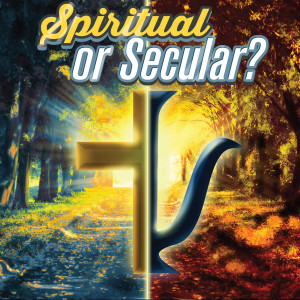Spiritual or Secular? Christian vs. Traditional Counseling
The main difference between Christian and non-Christian counselors is the authorities under which they operate: the church or the state. Let’s take a look at some of the differences between the two professions.
Education
Christian
Master’s degree required, with the exception of clergy members. Practitioners should also have extensive knowledge of the Bible and Christian practices. (1)
Traditional
Master’s degree in psychology or social work required. (2)
License Requirements
Christian
Six states offer specific Christian counseling licensure (Arkansas, Kentucky, Maine, New Hampshire, North Carolina and Tennessee); all other states require licensure equal to other professional mental health counselors. (3)
Traditional
Post-degree clinical experience and licensure after a state-specific exam are required. (2)
Median Salary
Christian
$50,531 (4)
Traditional
$41,500 (2)
Typical Places of Practice
Christian
Private offices, churches, Christian schools, adoption agencies, hospitals, funeral homes, homeless shelters. (5)
Traditional
Nursing and residential care facilities, outpatient care centers, private offices, government offices, private healthcare offices, hospitals. (2)
Common Counseling Subjects
Christian
Family counseling, marriage counseling, premarital counseling, youth counseling, addiction, depression. (5)
Traditional
Depression, addiction, psychiatric disorders, anxiety, post-traumatic stress, couples counseling. (2)
Hypothetical Situations
Here’s a look at the differences in how each type of counselor would handle common issues: (6, 7, 8, 9)
Addiction
“I am physically and mentally addicted to drugs and alcohol.”
Christian counseling approach: Addiction is an inner battle with sin. The best way to help recovering addicts, beyond typical medical treatment, is to remove the idolatry and replace it with God.
Featured Programs
Traditional counseling approach: We will find the root of the issue behind your addiction and find healthy replacement activities that will devote your energy to a non-destructive lifestyle.
52 million
Americans who have taken prescription drugs non-medically in their lifetimes (10)
Marriage troubles
“My spouse and I don’t get along anymore. We have both been unfaithful. We are considering divorce.”
Christian counseling approach: The foundation of a marriage must be God. If each is attempting to be more like God and live a Christian life, then all problems between the married parties will become solvable. Let’s address the faults that lie in each of you and how they can be reconciled with a better relationship with Jesus Christ.
Traditional counseling approach: Each individual should first be treated separately, so that we can look at their issues as an independent person. Then, the couple should be counseled on dependency, understanding and how to maintain a healthy relationship built on mutual respect.
U.S. divorce rate by year (divorces and annulments per 1,000 population) (11)
2000: 4.0
2001: 4.0
2002: 3.9
2003: 3.8
2004: 3.7
2005: 3.6
2006: 3.7
2007: 3.6
2008: 3.5
2009: 3.5
2010: 3.6
2011: 3.6
Depression
“I’ve been feeling down recently, like there’s no purpose in life. Nothing is ever going to change.”
Christian counseling approach: Those suffering from an absence of meaning in their lives should confess, as guilt and shame only worsen a state of depression. They should seek out good in Scripture and in fellowship with other Christians.
Traditional counseling approach: Let’s focus on talk therapy and get to the root of what is making you depressed. Your past? Your future? Something traumatic that happened? Once you figure out and let go of the main issue behind your depression, you will be able to move forward.
1 in 10
Adults who report being depressed (12)
Sources:
1. http://degreedirectory.org
2. http://www.bls.gov
3. http://www.aapc.org
4. http://education-portal.com
5. http://www.collegesanddegrees.com
6. http://www.christianpost.com
7. http://www.lifeway.com
8. http://www.marriageguardian.com
9. http://www.aplaceofhope.com

